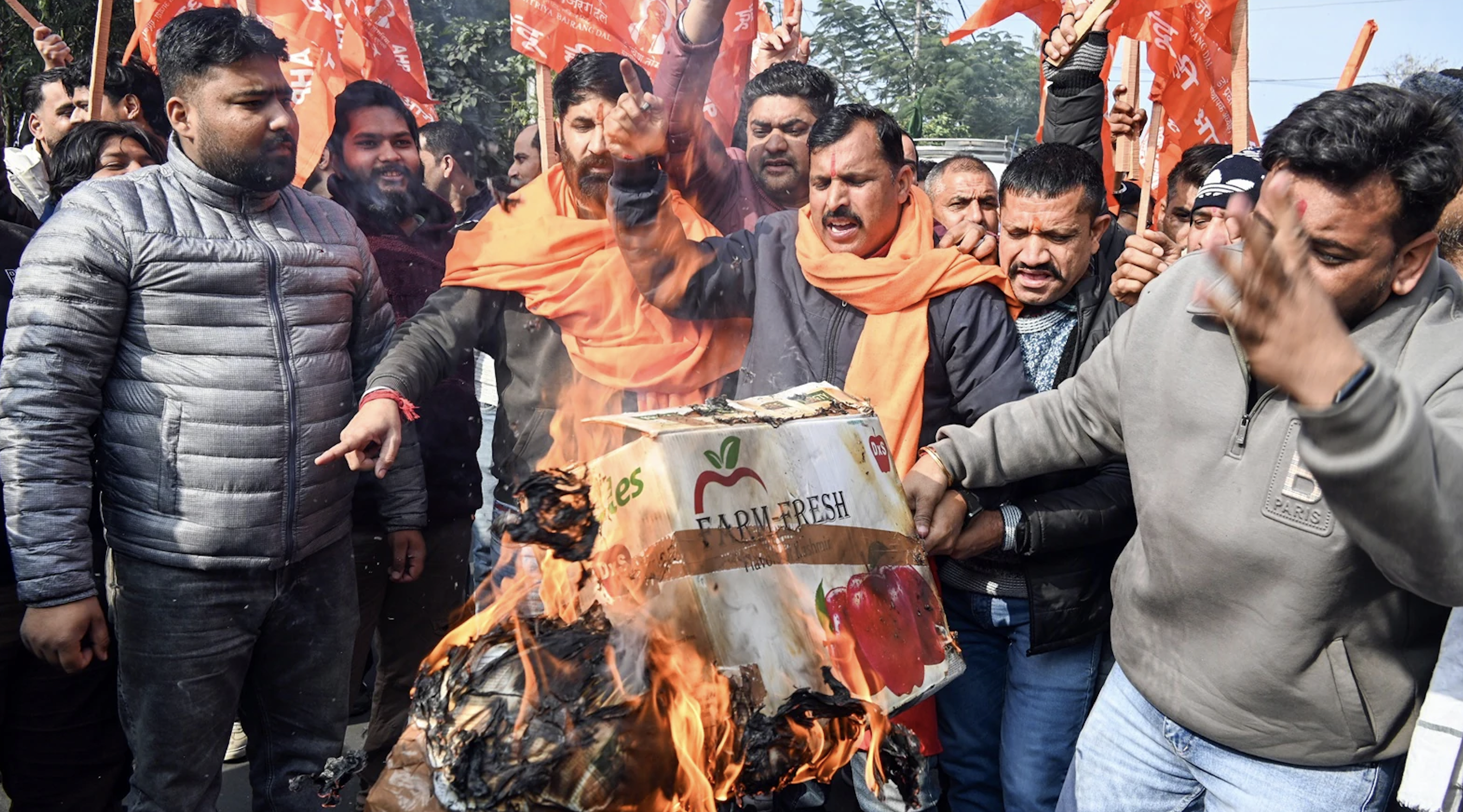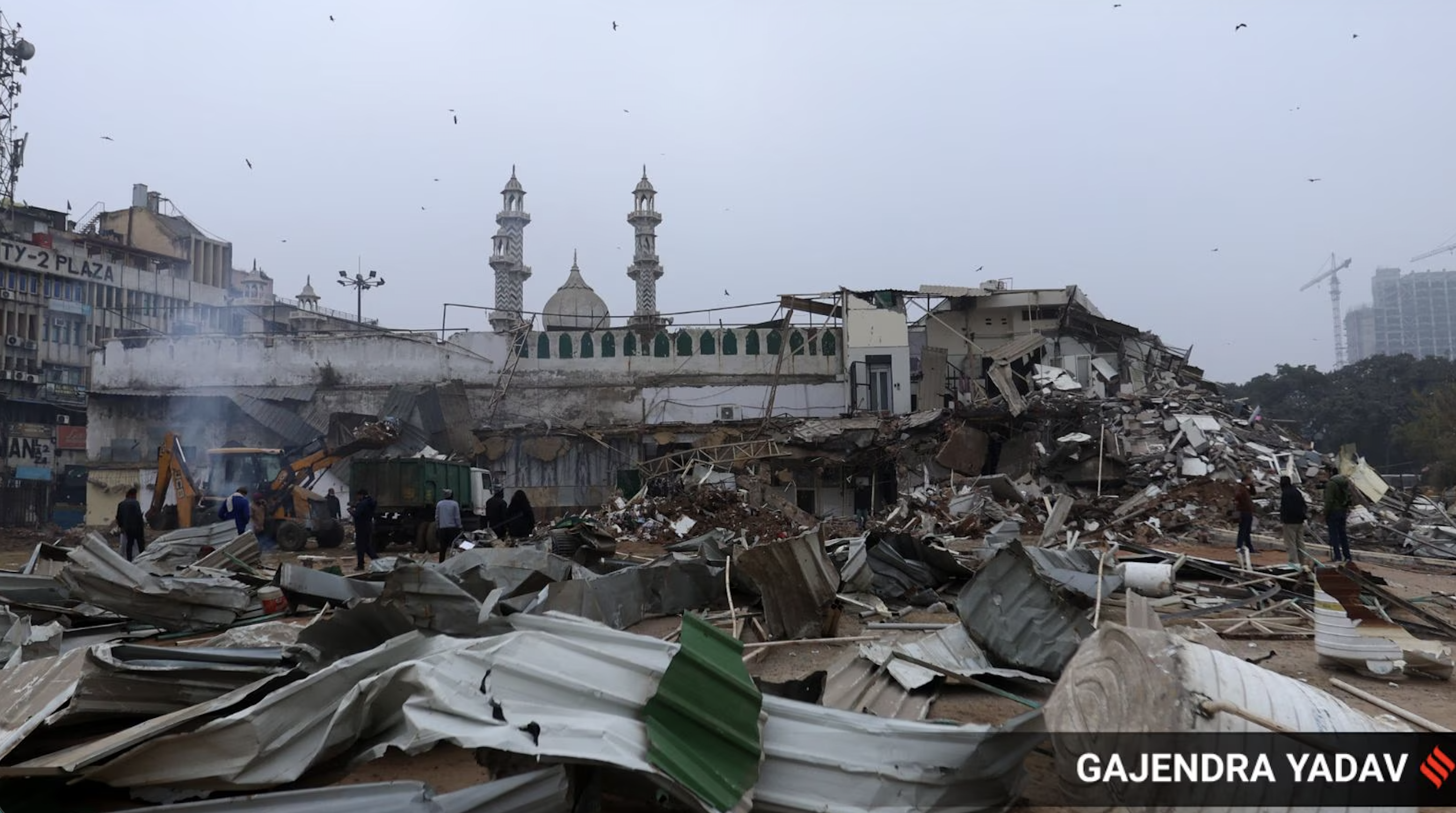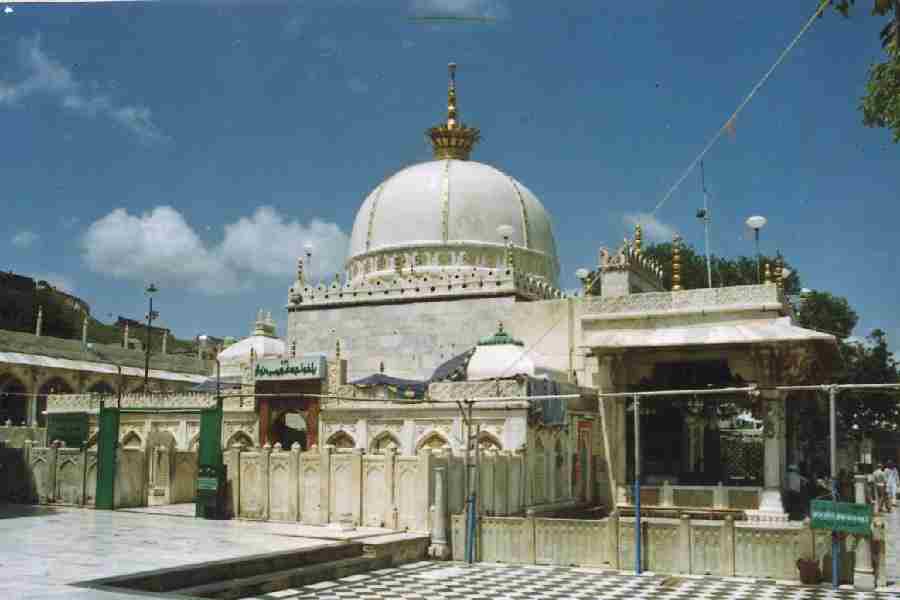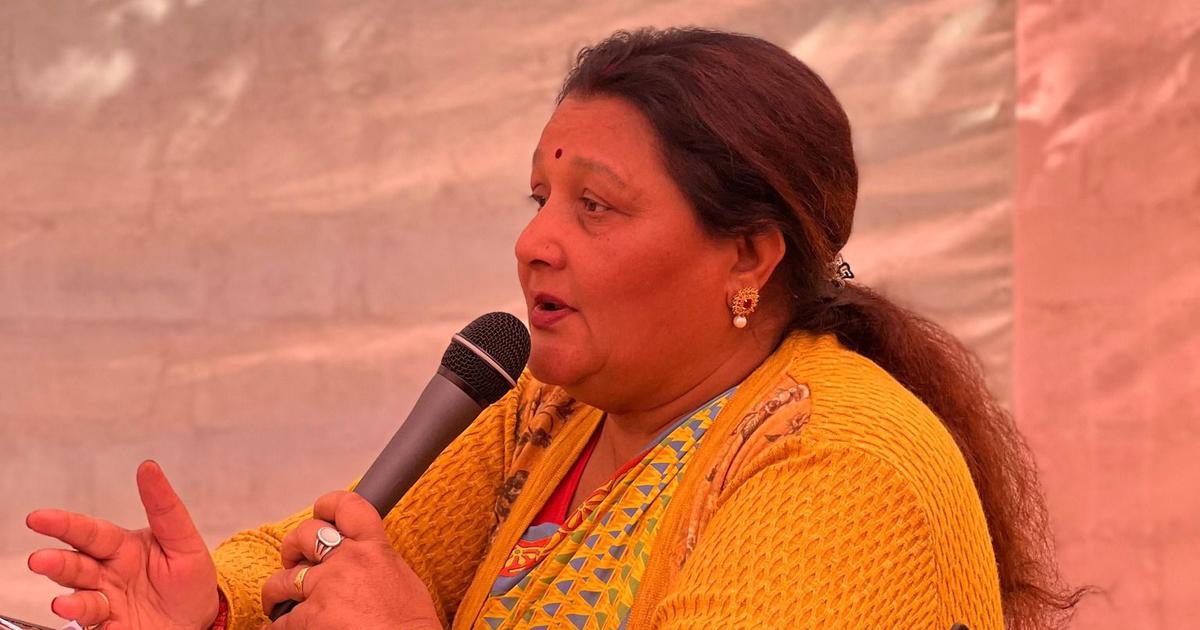
The sound of bulldozers reverberated in cities cross India over the weekend as authorities knocked down the homes of Muslims allegedly involved in violent protests against controversial remarks made by senior members of Narendra Modi’s ruling party about the prophet Muhammad.
In Prayagraj in Uttar Pradesh state a crowd gathered as a bulldozer tore into the home of the Muslim activist Mohammed Javed on Sunday.
“We heard the bulldozer before we saw it,” said Imamuddin Alam, 48. “I was worried about my grocery shop which is nearby. There was nothing but rubble left. This is the new pattern now. Bharatiya Janata party (BJP) leaders provoke us, arrest us when we react and then bulldoze our homes.”
Protests broke out in several cities across India – including Ranchi, Howrah, Kanpur and Saharanpur – following Friday prayers last week. Some turned violent, with protesters setting shops and vehicles on fire and clashing with police. Near Howrah, the office of the ruling BJP was vandalised and nearby vehicles torched.
The latest protests were a continuation of a fortnight of sporadic demonstrations by Muslims that began when the BJP spokesperson Nupur Sharma made derogatory comments about the prophet during a raucous television debate.
The unrest left two dead in Ranchi, hundreds injured and several hundred under arrest. The chief minister of Uttar Pradesh, Yogi Adityanath, ordered officials to demolish the allegedly illegal buildings of Muslims accused of involvement in the protests.
His media adviser, Mrityunjay Kumar, tweeted a photograph of a digger and said: “Unruly elements remember, every Friday is followed by a Saturday.”
The BJP last week suspended Sharma and expelled another senior member for the remarks. The government also disavowed the comments as it attempted to quell a diplomatic storm that had broken out in the Middle East.
Over the past two years there has been a rise in violent rhetoric about Muslims by BJP officials and extremist Hindu groups, covering subjects including how they worship, what they eat, the hijab, and the status of mosques.
Modi, the prime minister, and the top BJP leadership have remained silent about the provocations, while opposition parties, wary of antagonising the Hindu majority, have also chosen not to intervene.
Muslim community leaders are searching for the right reaction. “We need to express our hurt when we are wantonly attacked. But it has to be democratic and peaceful so that we do not provoke retaliation or damage our image. Violence will weaken our case,” said Dr Taslim Rahmani, the president of the Muslim Political Council of India.
A balanced response is proving difficult. People such as Rahmani know that the Hindu far right is itching to take Muslims on, waiting for them to take a wrong step.
The Muslim politician Imtiaz Jaleel experienced the difficulty of responding to the anger when Delhi police asked him to come to Jama Masjid, the main mosque in Delhi, to pacify a large crowd that had gathered after prayers.
In remarks he later retracted, he told the crowd that Sharma should be hanged in the nearest square. “The situation was volatile and the crowd angry. I had to speak the language of the crowd to calm things,” he said when later challenged about the remark. “As a lawmaker, I know it is reprehensible to hang people on the streets. But I had to say something that would pacify the crowd.”
The All India Muslim Personal Law Board has told Muslims to avoid toxic television debates on rightwing television channels where Muslim panellists are routinely abused by Hindu speakers in ugly slanging matches.
“Do not participate in television debates whose sole intention is to mock and insult Islam and Muslims … To gather legitimacy, these TV channels need Muslim faces in their debates. If we boycott such programmes … they will fail in achieving their desired outcome,” said a spokesperson, SQR Ilyas.
The Jamaat Ulama-e-Hind, a group of Islamic scholars, plans to issue a fatwa signed by 1,000 prominent Indians urging Muslims to avoid any violent protest in the name of the prophet.
Given the acute dilemma Muslims find themselves in, there are differences of opinion on how best to cope with an increasingly belligerent BJP and its affiliated groups. The Jamaat Ulama-e-Hind, for example, is upset with some Muslim politicians for stoking the anger rather than moderating it.
The other question Muslims are grappling with is whether the BJP, assuming it wishes to, can put the genie back in the bottle; whether, having granted carte blanche to far-right Hindu groups and to rabble-rousers within its own ranks, it is within the BJP’s ability to rein them in without risking the loss of their support.
“Attacking us with impunity has become the new normal. Coming back from this situation will be tough. The extremists have tasted blood,” said Alam.
This article first appeared on theguardian.com






